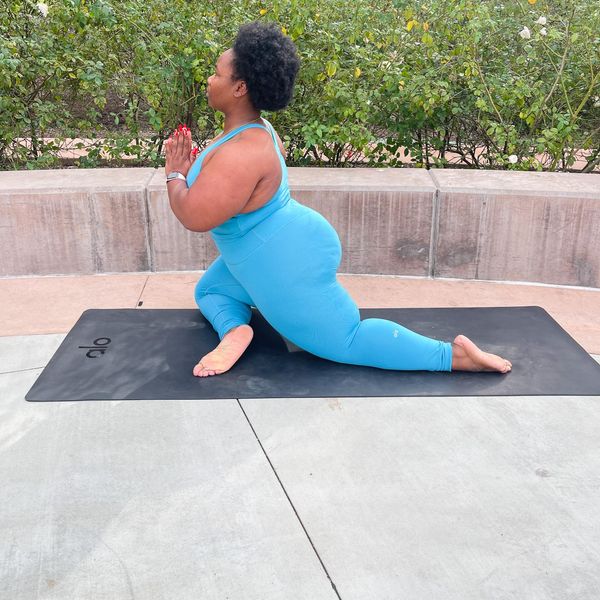
Earlier this spring, I remember reading an article where Oprah said that she had never been to therapy before; that in her mind, her best friend, Gayle King was her "regulator". When you think about all that Oprah has shared regarding childhood trauma, weight battles and pressures with her platform and then you add to that the fact that she gives out so much advice for a living, that seemed rather ironic to me.
It also reminded me of why I oftentimes say to my own clients that there is a difference between something being therapeutic and actually going to therapy. To me, at least once in life, everyone should see a therapist (or counselor or life coach). It's simply a good idea to have a professional help you to look at things from an "outside looking in", totally objective perspective, whether it's for the purpose of healing, revelation, goal-setting — or all of the above.
If you're someone who has either never been to a therapist before yet you've been strongly considering doing so as of late or you've tried it, got burned, and are leery about attempting going again (even though a part of you feels like you should), as a marriage life coach myself, I wanted to share 10 questions that you should personally run through. Ones that can help you feel a lot more confident about sitting on a therapist's couch — for a season.
1. What Specifically Do You Want a Therapist For?
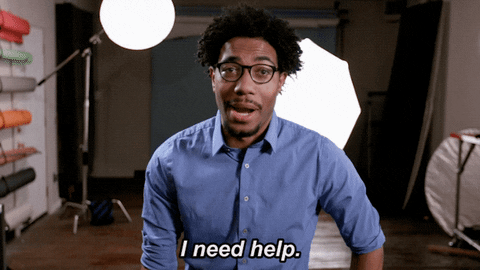
When it comes to this first point, let me say that it would be a bit unfair for anyone who is a therapist to automatically expect you to know what kind of help that you need. After all, getting to the root of that is actually a part of a therapist's job. At the same time, it is a good idea to have some sort of ballpark idea of what you're looking for and the desired outcome you'd like to have. Like me? I work specifically with people who want to keep their marriage together, get it to thrive or those who desire marriage. Sometimes, I'll work with singles who are trying to get some areas of their life together; however, based on how complex and serious those issues are, I'll refer them out.
So, how do you start with your search when it comes to targeting exactly what you want or need? Well, do you want personal or professional assistance? Does it have to do with relationships in any way? Perhaps you've got some patterns/habits that you'd like to break. Are there things about how you live your life that you sense may be rooted in childhood trauma? Maybe you feel stagnant and you need someone to help you to get "unstuck" and set some goals. Ask some questions until you are able to "scratch an itch" so to speak. By the way, if there is something (or one) that is internally nagging you that won't seem to go away, that is a good indication that it should be brought up in therapy.
2. Will a Life Coach Do?
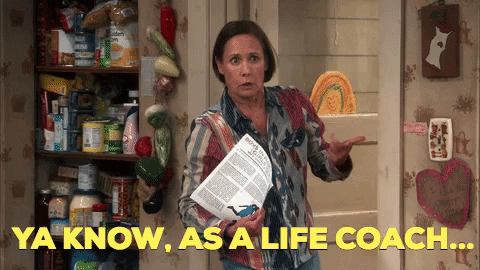
I once heard someone say that the main difference between a therapist and a life coach is a therapist focuses on one's mental health while a life coach is about helping someone reach their goals. I can definitely see there being a lot of truth to that; however, oftentimes a therapist is also considered to be a licensed psychologist, psychiatrist or counselor while a life coach? Some have "letters behind their name" while others do not. It kind of all depends on how much education you'd prefer the person you are working with to have. For instance, a lot of church folks go to see their pastor for counsel yet many of them aren't licensed therapists (or even licensed life coaches); they would be more like a life coach. I've been very open that I am a life coach as well. My work comes from years of experience while a friend of mine, who is also a coach, recently got certified.
Personally, when I'm dealing with a person or couple who I feel have some really deep-rooted issues, oftentimes I will recommend that they go to a therapist in addition to seeing me. However, if you're basically looking for assistance in identifying core issues and mapping out a plan on how to move forward, many times a coach (in an area of expertise that you're looking for because there are many different kinds) will fit the bill.
3. Is Their Ethnicity and Gender Relevant?
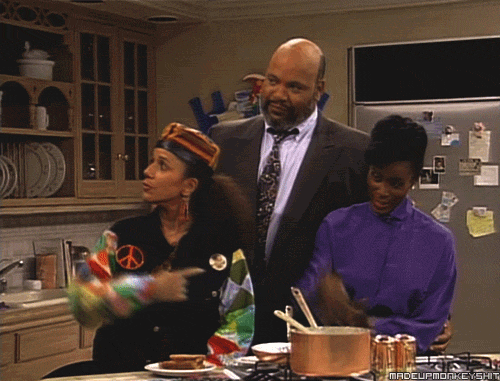
Not too long ago, a friend of mine asked me to refer them to a life coach. When I asked them what area they wanted to focus on, they said that they needed to get professionally organized and also create some long-term goals. Because this individual is pretty "fist in the air" (I'm sure you get what I mean by that — LOL), I assumed that they wanted someone Black. To my surprise, no. "I would actually prefer someone who sees life from a different lens because a lot of my clients aren't Black." Noted.
Some of you who are die-hard Insecure fans can recall the journey that Molly went on to find the right therapist for her. And yes, sometimes, being with someone who shares your ethnicity and/or gender can be a real comfort because you tend to feel like they get exactly where you are coming from. Anyway, whether that is the case for you or not, definitely factor this in while making your selection. It can make finding your right fit so much easier for you.
4. Do They Share or Respect Your Value/Belief System?

As a marriage life coach, I've worked with a few atheist couples in my time (actually, atheists tend to say married a lot longer than many Christians do…that's another article for another time, though). Because I strive to be a Bible follower, I've been asked if that was difficult to do. Eh, a little challenging only because I am someone who believes that marriage is a faith-based union; however, not impossible because I also believe that you can have morals and not be of the same faith system as I am. Still, since I tend to bring up God and Scripture quite a bit, I do make sure that prospective clients know that I think marriage is a covenant relationship and that I use the Bible in a lot of my counsel — at least a lot of the time. At the same time, there is actually a verse in the Word that talks about speaking in parables (applicable stories), so that folks who wouldn't understand Scripture can understand where you are coming from (Matthew 13:13). Taking that in has made it easier to communicate with folks from all walks of life.
Anyway, the bottom line here is you don't want to see someone who could end up doing a lot of debating with you or you're going to feel patronized around because you both have a different set of values or belief systems. If you're Jewish and want a Jewish therapist or agnostic and would prefer someone who won't bring up faith at all in your sessions, that makes total sense; it's pretty wise to look for that. You're already gonna have a lot to unpack. No need to start, right out of the gate, not seeing eye to eye about core foundational issues.
5. Have You Ever Seen a Therapist Before?
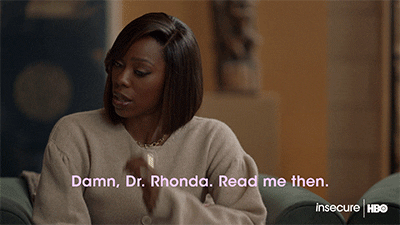
When I say that there is someone in my life who needs to go to therapy, stat — there can't be a bigger understatement when it comes to this topic. While the core of him is good, he makes some of the most redundantly toxic choices that I have ever seen in my entire life. The real catcher is he's so cryptic when it comes to how he moves that a lot of people come to him for insight. It's a mess. The few times when he has at least allowed me to broach the topic of counseling, he once shared that when he took a chance and tried, the therapist actually did something that was extremely unethical; they started developing feelings for him. And so, as of now, that has caused him to stay as far away from therapy as possible.
If you're hesitant about going to a therapist because you've never been before and you're not sure what to expect, that is totally understandable. Just try and keep an open mind. No one can make you do anything you want to do — including staying with someone you don't like or continuing in something that doesn't seem like a wise fit. On the other hand, if you're damning therapy because of a bad past experience, what I will say is, just like there are some good and bad people in general, there are also some good and not-so-good therapists. To swear off all of them because of one unfortunate situation would be a shame. Besides, how can one meeting — possibly a couple of times — with someone new hurt? You're still in control. No matter what. Always remember that.
6. How Do They Act in the First Meeting?
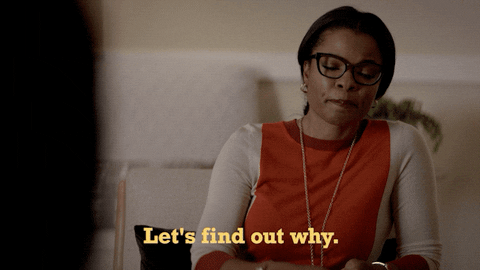
I'm gonna be straight up with you. Seeing a prospective therapist/counselor/life coach for the first time is a lot like a first date. And just like first dates, there are several red flags that you should look out for. Ready? Here are 10 of 'em.
- If they're late. It means they don't respect your time.
- If you feel like they are over-talking you. They aren't good listeners.
- If they come off condescending or patronizing. You need to feel comfortable.
- If they are distracted. That's just plain rude.
- If you feel like they're giving more of a monologue than dialoguing with you. You aren't to be their audience member.
- If you feel a hell of a lot worse rather than better. No one should feel like shame imposed by the therapist. Do keep in mind that therapy may bring about really uncomfortable moments so that you can get to the root of matters.
- If you sense gaslighting or manipulation. A therapist shouldn't be emotionally controlling or violating you.
- If it seems like a religion session. A faith-based therapist is one thing. Trying to recruit you is something else.
- If you feel no sense of peace. A good fit will bring about some clarity or "ah ha" moments, even from the first meeting.
- If you just don't "click". No explanation needed.
7. How Does Payment Go?
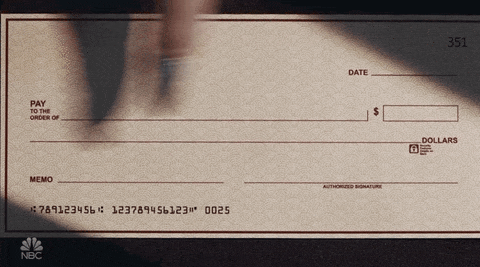
This is huge. Some therapists only take insurance (and well, you already know how that goes). Some will change insurance companies and just drop you (even if you've worked with them for years). Some are willing to work out some sort of out-of-pocket payment plan. The bottom line with this point is assume nothing. I know some people who were really hurt when, after several years of seeing (and becoming really comfortable with) their therapist, they had to part ways because their therapist left their insurance network and so they couldn't afford to keep seeing them. Let me tell it, before even going to the first session, this should be addressed. It would be a shame to find someone you really like, even upon the initial meeting, only to realize that you can't afford them.
8. How Committed Do You Plan on Being to the Process?
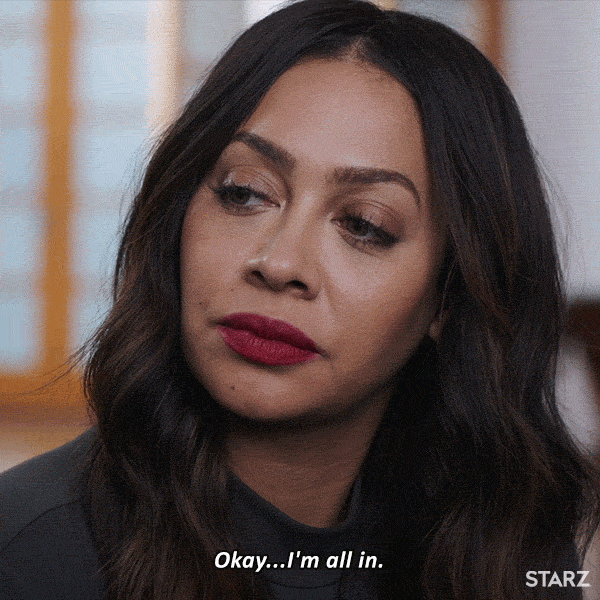
I believe I can speak for all people in the counseling field when I say that nothing is more taxing than working with clients where we seem far more invested in their betterment/healing than they do. I can't tell you how many couples I've worked with who don't do the assignments and/or will show up late and/or will cancel/reschedule at the last minute — over and over again. Or, they want to meet far and few between, when their problems clearly indicate that they need to be seeing someone, at least a couple of times a month. Matter of fact, I know a couple who's basically been in some sort of therapy, ever since they said, "I do". However, they are infrequent as all get out and are constantly in a pattern of expecting the therapist to save them from divorce whenever they allow things to go too far. Saving you at the last minute? Yeah, that is not our job. And it's not even fair.
Anyway, once you've met with a therapist for a few times, they should be able to give somewhat of an assessment of how often you should see them and how long it will be necessary (at that level of intensity, whatever that may be). If you know that you are not going to commit to that, you might want to wait until you can. The reality is that some people have a bad experience in therapy, not because of the therapist or the therapy itself; it's because they are mentally and emotionally all over the place and refuse to do the work that is required. And as best-seller author Iyanla Vanzant often says, "We're not gonna fight you for your healing." We shouldn't have to.
9. Has the Therapist Ever Been to Therapy?
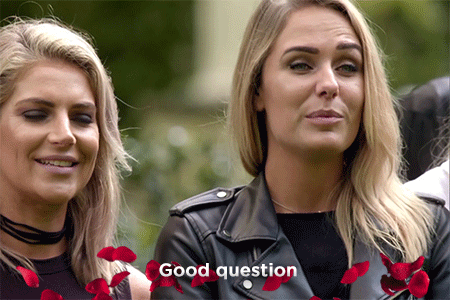
This. One. Right. Here. If you're someone who's always been hesitant about going to therapy because you've heard that some of the craziest people are therapists — I'm not gonna lie and act like there's not some truth to that. There are many narcissists who are therapists. There are a lot of arrogant people who are therapists. Some folks use being a therapist as a way of escapism from their own demons and drama because it makes them feel good to fix other people's stuff rather than dig deep and tackle their own. And then there are some therapists who are so delusional that they think everyone needs their insight while they can't humble themselves to hear what they need to do with their own lives.
This is why I think it is totally NOT out of bounds to ask a prospective therapist if they've ever been to therapy before. While the reasons why are not really any of your business, you can learn a lot about someone who is willing to admit that either they've had past issues that they've needed to tackle or, like Meryl Streep's character did in one of my favorite movies (Prime), they go because they hear so much of other people's stuff that they need a professional to help them to process it all and set good emotional boundaries.
One of my favorite licensed counselors, I saw in high school, college and many years into my 20s. Now I have a therapist friend that I run things by when I need them. They are an absolutely godsend. So yeah, a therapist who has a therapist isn't something to side-eye. It's actually something to smile about.
10. What’s the “Proof of Purchase”?
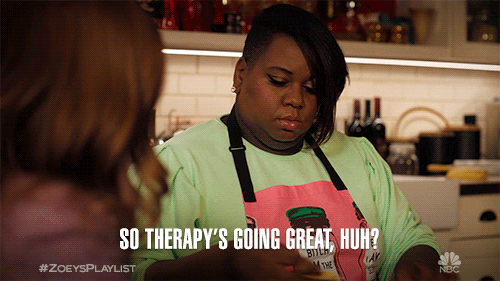
Something that I apply to churches and therapists is, if after about a year, you see no signs of personal growth and progress, that's probably not the place for you. Best believe that, also like a lot of churches, unfortunately, there are some therapists out here who are perfectly fine running your credit/debit card, listening to you and not really tracking for your growth. A thorough therapist will actually talk about where things stand and how you're doing, periodically. And you should expect that because a therapist is supposed to provide you with tips and tools to be better as the result of interacting with them. You definitely shouldn't be stagnant or worse — worse.
I am passionate about people getting the health that they need, so of course, I could go on. I'm hoping that this will help to at least provide you with some peace of mind. Therapy is a blessing. Asking the right questions can lead you to the best therapist. It really can.
Join our xoTribe, an exclusive community dedicated to YOU and your stories and all things xoNecole. Be a part of a growing community of women from all over the world who come together to uplift, inspire, and inform each other on all things related to the glow up.
Featured image by Getty Images
- Why Janelle Monae Advocates For Therapy As A Form Of Self-Care ... ›
- Therapy For Black Girls: Beginner's Guide To Therapy - xoNecole ... ›
- Childhood-Related Questions To Ask Your Partner - xoNecole: Women's Interest, Love, Wellness, Beauty ›
- What To Know About Hiring A Life Coach - xoNecole: Lifestyle, Culture, Love, & Wellness ›
- Key Questions to Ask When Choosing a Therapist ›
- 6 Questions Everyone Should Ask Their Therapist | Everyday Health ›
- 20 Questions to Ask Your New Therapist | Advocating for Better ... ›
- A Beginners Guide to Therapy. Part 2: What to ask in the consult ... ›
- The 14 Questions You Should Ask a Therapist Before Your First ... ›
RELATED
Exclusive: Viral It Girl Kayla Nicole Is Reclaiming The Mic—And The Narrative
It’s nice to have a podcast when you’re constantly trending online. One week after setting timelines ablaze on Halloween, Kayla Nicole released an episode of her Dear Media pop culture podcast, The Pre-Game, where she took listeners behind the scenes of her viral costume.
The 34-year-old had been torn between dressing up as Beyoncé or Toni Braxton, she says in the episode. She couldn’t decide which version of Bey she’d be, though. Two days before the holiday, she locked in her choice, filming a short recreation of Braxton’s “He Wasn’t Man Enough for Me” music video that has since garnered nearly 6.5M views on TikTok.
Kayla Nicole says she wore a dress that was once worn by Braxton herself for the Halloween costume. “It’s not a secret Toni is more on the petite side. I’m obsessed with all 5’2” of her,” she tells xoNecole via email. “But I’m 5’10'' and not missing any meals, honey, so to my surprise, when I got the dress and it actually fit, I knew it was destiny.”
The episode was the perfect way for the multihyphenate to take control of her own narrative. By addressing the viral moment on her own platform, she was able to stir the conversation and keep the focus on her adoration for Braxton, an artist she says she grew up listening to and who still makes her most-played playlist every year. Elsewhere, she likely would’ve received questions about whether or not the costume was a subliminal aimed at her ex-boyfriend and his pop star fiancée. “I think that people will try to project their own narratives, right?” she said, hinting at this in the episode. “But, for me personally – I think it’s very important to say this in this moment – I’m not in the business of tearing other women down. I’m in the business of celebrating them.”
Kayla Nicole is among xoNecole’s It Girl 100 Class of 2025, powered by SheaMoisture, recognized in the Viral Voices category for her work in media and the trends she sets on our timelines, all while prioritizing her own mental and physical health. As she puts it: “Yes, I’m curating conversations on my podcast The Pre-Game, and cultivating community with my wellness brand Tribe Therepē.”
Despite being the frequent topic of conversation online, Kayla Nicole says she’s learning to take advantage of her growing social media platform without becoming consumed by it. “I refuse to let the internet consume me. It’s supposed to be a resource and tool for connection, so if it becomes anything beyond that I will log out,” she says.
On The Pre-Game, which launched earlier this year, she has positioned herself as listeners “homegirl.” “There’s definitely a delicate dance between being genuine and oversharing, and I’ve had to learn that the hard way. Now I share from a place of reflection, not reaction,” she says. “If it can help someone feel seen or less alone, I’ll talk about it within reason. But I’ve certainly learned to protect parts of my life that I cherish most. I share what serves connection but doesn’t cost me peace.
"I refuse to let the internet consume me. It’s supposed to be a resource and tool for connection, so if it becomes anything beyond that I will log out."

Credit: Malcolm Roberson
Throughout each episode, she sips a cocktail and addresses trending topics (even when they involve herself). It’s a platform the Pepperdine University alumnus has been preparing to have since she graduated with a degree in broadcast journalism, with a concentration in political science.
“I just knew I was going to end up on a local news network at the head anchor table, breaking high speed chases, and tossing it to the weather girl,” she says. Instead, she ended up working as an assistant at TMZ before covering sports as a freelance reporter. (She’s said she didn’t work for ESPN, despite previous reports saying otherwise.) The Pre-Game combines her love for pop culture and sports in a way that once felt inaccessible to her in traditional media.
She’s not just a podcaster, though. When she’s not behind the mic, taking acting classes or making her New York Fashion Week debut, Kayla Nicole is also busy elevating her wellness brand Tribe Therepē, where she shares her workouts and the workout equipment that helps her look chic while staying fit. She says the brand will add apparel to its line up in early 2026.
“Tribe Therepē has evolved into exactly what I have always envisioned. A community of women who care about being fit not just for the aesthetic, but for their mental and emotional well-being too. It’s grounded. It’s feminine. It’s strong,” she says. “And honestly, it's a reflection of where I am in my life right now. I feel so damn good - mentally, emotionally, and physically. And I am grateful to be in a space where I can pour that love and light back into the community that continues to pour into me.”
Tap into the full It Girl 100 Class of 2025 and meet all the women changing game this year and beyond. See the full list here.
Featured image by Malcolm Roberson
There is a very specific reason why I decided to write this article before the holiday season officially gets underway. It’s because I once read a study that said it’s quite common for most Americans to double the amount of alcohol that they consume between Thanksgiving and New Year’s Day.
It makes sense when you stop to think about all of the holiday parties, time off, and moments spent with loved ones that transpire around this time of year. And while there is certainly nothing wrong with enjoying some mulled wine, real-deal eggnog, or peppermint martinis, because your health is something that never “takes a vacation,” I thought it was important to share with you some of the benefits (pros) and challenges (cons) that can arise from alcohol consumption.
My main motive? Mostly, I hope that it will serve as a solid reminder to embrace all of the things that you adore about this time of year, so long as you do it in moderation and you weigh the costs.
Especially as far as drinking alcohol is concerned.
PRO: Manages Blood Sugar Levels
 Giphy
GiphyHere’s something that you may have never seen coming. Were you aware of the fact that alcohol can actually help to stabilize your blood sugar? Yep, according to the American Diabetes Association, so long as you leave it to no more than 1-2 cocktails a day, alcohol may be able to lower your A1C levels. Pretty cool, right?
CON: It’s a Carcinogen
 Giphy
GiphyAlcohol is a carcinogen. The reason why this should somewhat alarm you is because carcinogens are things (like tobacco, UV rays, processed meats, etc.) that can increase your chances of being diagnosed with cancer (especially mouth, throat, esophagus, stomach and breast cancer). There are various ways this happens including the fact that alcohol, specifically, can hinder your body from breaking down certain nutrients, it can cause your estrogen levels to spike and alcohol can also cause certain toxins to damage your DNA and certain bodily proteins over time.
PRO: Cultivates Euphoric Feelings
 Giphy
GiphyIf you find yourself feeling more euphoric while you’re enjoying a drink, it’s not all up in your head. Although, for the more part, alcohol is considered to be a depressant, when consumed in small amounts, it can provide a stimulant effect. This happens due to the fact that when you first start to consume alcohol, it causes the production of the feel-good hormone known as dopamine to increase — and since dopamine makes us all feel more relaxed and confident while heightening our senses of pleasure too…well, there you have it.
CON: May Increase Anxiety/Depression
 Giphy
GiphyAs they say, “what goes up, most come down” at some point — and that is what you have to be careful of when it comes to alcohol consumption. For instance, when you drink alcohol, although it tends to initially cause your dopamine levels to uptick, because it is a temporary bodily response, sometimes the dips are lower than the rises…and that is when anxiety starts to kick in. A similar point is made with depression because oftentimes, people with depression-related symptoms, will use alcohol as a way to deflect from what’s really going on with them — and that can make them feel even worse than ever once the buzz of alcohol starts to wear off.
PRO: Has Some Heart-Related Benefits
 Giphy
GiphyWhen it comes to your heart, there are interesting findings surrounding its relationship to alcohol. For instance, some research states that, so long as the consumption is moderate, alcohol can actually help to increase the good cholesterol in your system while also breaking down proteins that can potentially lead to blood clots; both of these factors alone can reduce your chances of dying from heart disease.
CON: Packs on Pounds
 Giphy
GiphyIt’s no secret that alcohol tends to contain quite a few calories. That’s why, it’s not uncommon for people who’ve lost weight to mention “I’ve stopped drinking” as one of the causes for the shed pounds. That’s not to say that there aren’t some alcoholic beverages that have less calories than others including vodka (133 calories per serving), white wine (148 calories per serving) and tequila (99 calories per shot). Just keep in mind that the more you drink, the more calories get into your system and the more weight you stand to gain.
PRO: Lowers Inhibitions
 Giphy
GiphyAlthough you really should only be uninhibited around people who you absolutely trust, if that person is your partner and you’re looking to have a pretty — eh hem — active evening, alcohol can certainly help to make that happen. The science of it all is the prefrontal cortex of your brain is what regulates your inhibitions and levels of self-control. Meanwhile, alcohol suppresses your inhibitions which can cause you to be more spontaneous and open to trying things that you might not immediately do if you were sober. And with the right individual, that can be sexually beneficial (emphasis on “right person”).
CON: Makes It Harder to Orgasm
 Giphy
GiphyOn the other hand, as odd as it may seem (in light of what I just said), if you have too much alcohol in your system, it could make climaxing difficult. That’s because orgasms happen, in part, due to your nervous system being stimulated — and since alcohol is technically a depressant…well, it could reduce nerve sensitivity (especially as far as your clitoris goes) for you while making it challenging for your partner to remain erect or have consistent stamina. And yeah, that sucks.
____
‘Tis the season. And with that, if some wassails or hot buttered rums are in your immediate future — hey, don’t let me stop you — not even a lil’ bit.
All I’m saying is now that you know what alcoholic drinks have to offer (both ways), you can know exactly how to incorporate them into your holiday plans. Enjoy!
Let’s make things inbox official! Sign up for the xoNecole newsletter for love, wellness, career, and exclusive content delivered straight to your inbox.
Featured image by Unsplash





